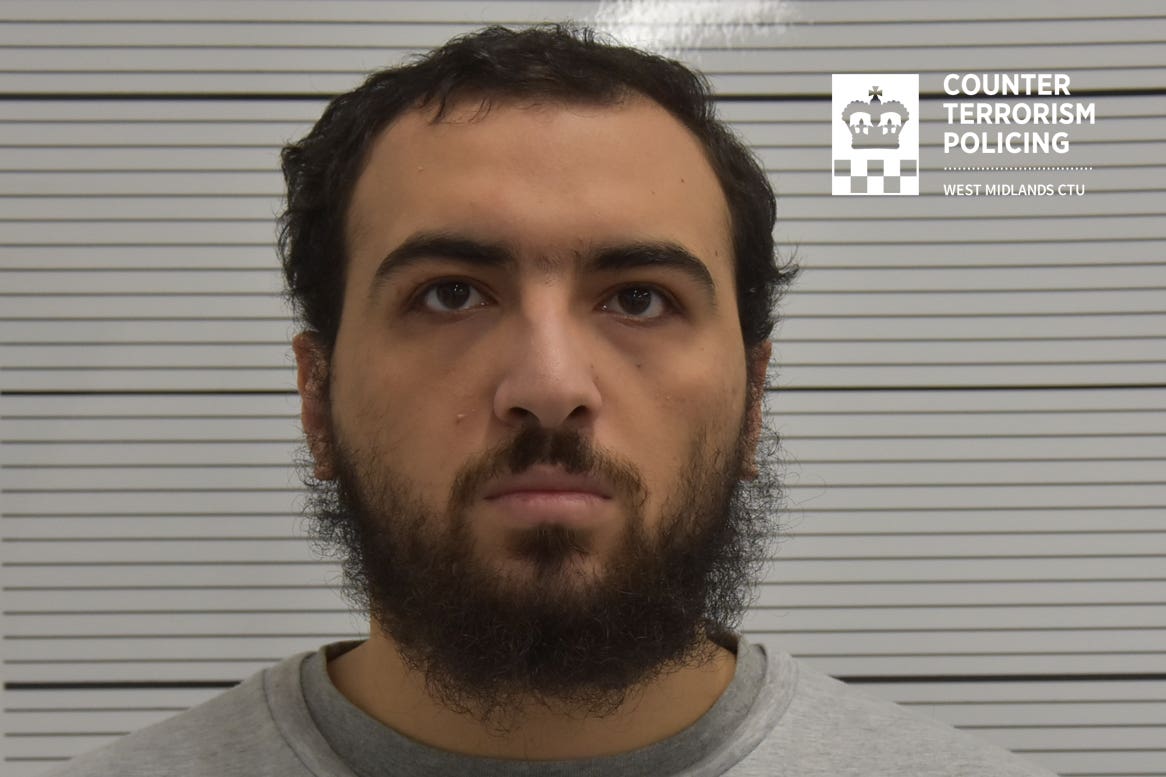PhD student who designed and built drone for IS jailed for at least 20 years
Mohamad Al Bared was jailed for life after researching poisons, including ricin, and making a prototype drone.

An engineering student who designed and built a “kamikaze” drone for use by the so-called Islamic State terror group has been jailed for life with a minimum term of 20 years.
Mohamad Al Bared, from Coventry, was found guilty in September by a jury that heard the 27-year-old put together a prototype drone, which he hoped would be capable of delivering a bomb or chemical weapon.
Jurors at Birmingham Crown Court deliberated for around six hours over two days before unanimously convicting Al Bared, who used a 3D printer to make the unmanned aerial vehicle (UAV).
The mechanical and chemical engineering graduate, of Kare Road, was found guilty of a single count of engaging in conduct in preparation of terrorist acts to benefit a proscribed terrorist organisation.
Passing sentence on Friday, Judge Paul Farrer KC said Al Bared, who previously studied at Coventry University and the University of Warwick, had decided to lend his support to the “terrorist agenda” of IS.
PhD student Al Bared, who also studied at the University of Birmingham and specialised in laser drilling, had contacted IS through an online messaging service and began to construct a drone in July 2022.
The judge said: “I have no doubt that you intended your design to be used as a single-use weapon with a range of up to five kilometres.
“Your preparations were undertaken with a view to endangering multiple lives.”
Observing that the design of the drone was “at best suspect and at worse fundamentally flawed”, the judge added: “This was a work in progress.
“You are a manipulative individual. You are a committed extremist. I have no doubt that you are still today a supporter of Islamic State.
“It is impossible to say whether you will ever surrender your extremist views. You are a dangerous offender from whom the public requires protection.
“The seriousness of the offending justifies a sentence of life imprisonment.”
The UAV and a mobile phone were seized when Al Bared was arrested in January this year, leading to the discovery of encrypted online chats and other digital material exposing his support for IS.
The court heard he intended to make a video-transmitting fixed-wing drone for terrorist purposes and to travel to West Africa via Turkey.
Al Bared had filled in an IS application form and set up a UK-registered company, purportedly to import Turkish food, to help plans for future foreign travel, his trial was told.
Written material saying the idea for the drone was “somewhat inspired by the design of the Tomahawk missile” was also put before jurors, in what the Crown said was Al Bared describing his build process.
Prior to sentencing, Al Bared’s barrister, Alistair Webster KC, applied unsuccessfully for the case to be adjourned for further consideration of psychiatric reports.
“He is not a person suited to being in prison,” Mr Webster said. “He is in a highly agitated state about the way things have gone.
“He finds the nature of some of the other prisoners extremely challenging.”
Commenting after the case, Nick Price, Head of the CPS Special Crime and Counter Terrorism Division, said: “Mohamad Al Bared built a drone with the sole purpose of supplying ISIS with the means to cause horror and destruction.
“This sentence means that a highly dangerous individual has been taken off the streets.
“The CPS will always work with the police to prosecute those who carry out such terrorism activities in order to keep communities safe.”
